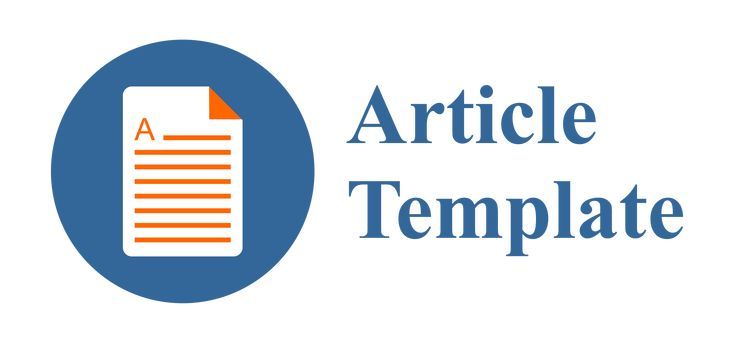Pemetaan Lintasan Karir Alumni Berdasarkan Analisis Cluster: Kombinasi K-Means dan Reduksi Dimensi Autoencoder
DOI:
https://doi.org/10.29408/edumatic.v9i1.29713Keywords:
alumni, autoencoder, clustering, k-meansAbstract
Alumni career mapping is a crucial aspect of evaluating and developing higher education programs. Cluster analysis, particularly the integration of k-means and autoencoder methods, has emerged as an effective solution for grouping complex and multi-dimensional alumni career data. This study aims to implement and assess the combination of k-means and autoencoder algorithms in alumni career mapping based on GPA, study duration, waiting time, job type, salary, job level, and field of study suitability. The autoencoder is employed to reduce dimensions, while k-means clusters alumni into groups based on the similarity of their career profiles. The data used in the cluster analysis is sourced from the tracer study. Pre-processing of the tracer study data is conducted through several stages, including cleaning, encoding, and normalization. The evaluation results indicate that the combination of k-means and autoencoder yields superior Silhouette and DBI scores. The Silhouette score with the autoencoder achieved 0.6112, while without it, the score was only 0.3956. The DBI value with the autoencoder is 0.566, whereas without it, the DBI reached 1.022. This cluster analysis effectively grouped the tracer study data into six clusters based on similarities in career profiles. The clustering results suggest that the formed clusters are more influenced by the alumni's job type and duration of study.
References
Achmad, F., Syariffuddien, Z., & Endryanyah, E. (2023). Application of Tracer Study for Alumni Mapping and Reorientation of Graduate Profiles. Proceedings of the International Joint Conference on Arts and Humanities 2022 (IJCAH 2022), 891–897. Surabaya, Indonesia. https://doi.org/10.2991/978-2-38476-008-4_94
Ashari, I. A., Negara, I. S. M., & Sumantri, R. B. B. (2022). Evaluasi Pembayaran Keuangan Siswa berdasarkan Penghasilan Wali Siswa menggunakan Metode Clustering K-Means. Edumatic: Jurnal Pendidikan Informatika, 6(2), 324–333. https://doi.org/10.29408/edumatic.v6i2.6395
Baroncelli, A., Bolzani, D., & Landoni, M. (2022). Mapping the engagement of alumni organisations in entrepreneurship education and support at UK universities. The International Journal of Management Education, 20(2), 100648. https://doi.org/10.1016/j.ijme.2022.100648
Baser, P., & Saini, J. R. (2015). Agent based Stock Clustering for Efficient Portfolio Management. International Journal of Computer Applications, 116(3), 35–41. https://doi.org/10.5120/20317-2381
Berahmand, K., Daneshfar, F., Salehi, E. S., Li, Y., & Xu, Y. (2024). Autoencoders and their applications in machine learning: a survey. Artificial Intelligence Review, 57(2), 1-52. https://doi.org/10.1007/s10462-023-10662-6
Chen, S., & Guo, W. (2023). Auto-Encoders in Deep Learning—A Review with New Perspectives. Mathematics, 11(8), 1–54. https://doi.org/10.3390/math11081777
Cortés, D. G., Onieva, E., López, I. P., Trinchera, L., & Wu, J. (2024). Autoencoder-Enhanced Clustering: A Dimensionality Reduction Approach to Financial Time Series. IEEE Access, 12, 16999–17009. https://doi.org/10.1109/ACCESS.2024.3359413
Cui, M. (2020). Introduction to the K-Means Clustering Algorithm Based on the Elbow Method. Accounting, Auditing and Finance Clausius Scientific Press, 1(1), 5-8.
Dahouda, M. K., & Joe, I. (2021). A Deep-Learned Embedding Technique for Categorical Features Encoding. IEEE Access, 9, 114381–114391. https://doi.org/10.1109/ACCESS.2021.3104357
Deng, D. (2020). DBSCAN Clustering Algorithm Based on Density. 7th International Forum on Electrical Engineering and Automation (IFEEA), 949–953. Hefei, China: IEEE. https://doi.org/10.1109/IFEEA51475.2020.00199
Hadijaya, Y., Said, H. B., Siregar, M. F. Z., & Wirtati, I. (2024). A Comparative Study on Mapping Alumni Satisfaction Levels Regarding Doctoral Program Management in Indonesia and Malaysia. Edutec: Journal of Education and Technology, 8(2), 429-440. https://doi.org/10.29062/edu.v8i2.1042
Liu, H., Chen, J., Dy, J., & Fu, Y. (2023). Transforming Complex Problems Into K-Means Solutions. IEEE Transactions on Pattern Analysis and Machine Intelligence, 45(7), 9149–9168. https://doi.org/10.1109/TPAMI.2023.3237667
Martins, A. S. C., Araujo, L. R., & Penido, D. R. B. (2024). K-Medoids clustering applications for high-dimensionality multiphase probabilistic power flow. International Journal of Electrical Power & Energy Systems, 157, 109861. https://doi.org/10.1016/j.ijepes.2024.109861
Miraftabzadeh, S. M., Colombo, C. G., Longo, M., & Foiadelli, F. (2023). K-Means and Alternative Clustering Methods in Modern Power Systems. IEEE Access, 11, 119596–119633. https://doi.org/10.1109/ACCESS.2023.3327640
Sitorus, R. A., Arya, D., Dasopang, B. S., & Zufria, I. (2023). Analisis Tracer Study Alumni Program Studi S1 Ilmu Komputer UIN Sumatera Utara. Jurnal Kridatama Sains Dan Teknologi, 05(2), 411–420. https://doi.org/10.53863/kst.v5i02.967
Suraya, S., Sholeh, M., & Lestari, U. (2023). Evaluation of Data Clustering Accuracy using K-Means Algorithm. International Journal of Multidisciplinary Approach Research and Science, 2(01), 385–396. https://doi.org/10.59653/ijmars.v2i01.504
Wardhana, F. P., & Winarno, S. (2024). Analisis Pemain Terbaik Sepak Bola dengan menggunakan Algoritma K-Means. Edumatic: Jurnal Pendidikan Informatika, 8(2), 409–417. https://doi.org/10.29408/edumatic.v8i2.27105
Warni, S., Komara, C., & Kaniadewi, N. (2023). The Tracer Study: An In-Depth Search of The English Education Program Graduates. Ellter Journal, 4(1), 93–106. https://doi.org/10.22236/ellter.v4i1.11137
Wathoni, K. (2021). Alumni Menurut Perspektif Total Quality Management (TQM). MA'ALIM: Jurnal Pendidikan Islam, 2(01), 34-48. https://doi.org/10.21154/maalim.v2i01.3036
Zhu, Z., Xu, M., Ke, J., Yang, H., & Chen, X. (Michael). (2023). A Bayesian clustering ensemble Gaussian process model for network-wide traffic flow clustering and prediction. Transportation Research Part C: Emerging Technologies, 148, 104032. https://doi.org/10.1016/j.trc.2023.104032
Downloads
Published
How to Cite
Issue
Section
License
Copyright (c) 2025 Daru Prasetyawan, Agus Mulyanto, Rahmadhan Gatra

This work is licensed under a Creative Commons Attribution-ShareAlike 4.0 International License.
All articles in this journal are the sole responsibility of the authors. Edumatic: Jurnal Pendidikan Informatika can be accessed free of charge, in accordance with the Creative Commons license used.

This work is licensed under a Lisensi a Creative Commons Attribution-ShareAlike 4.0 International License.




